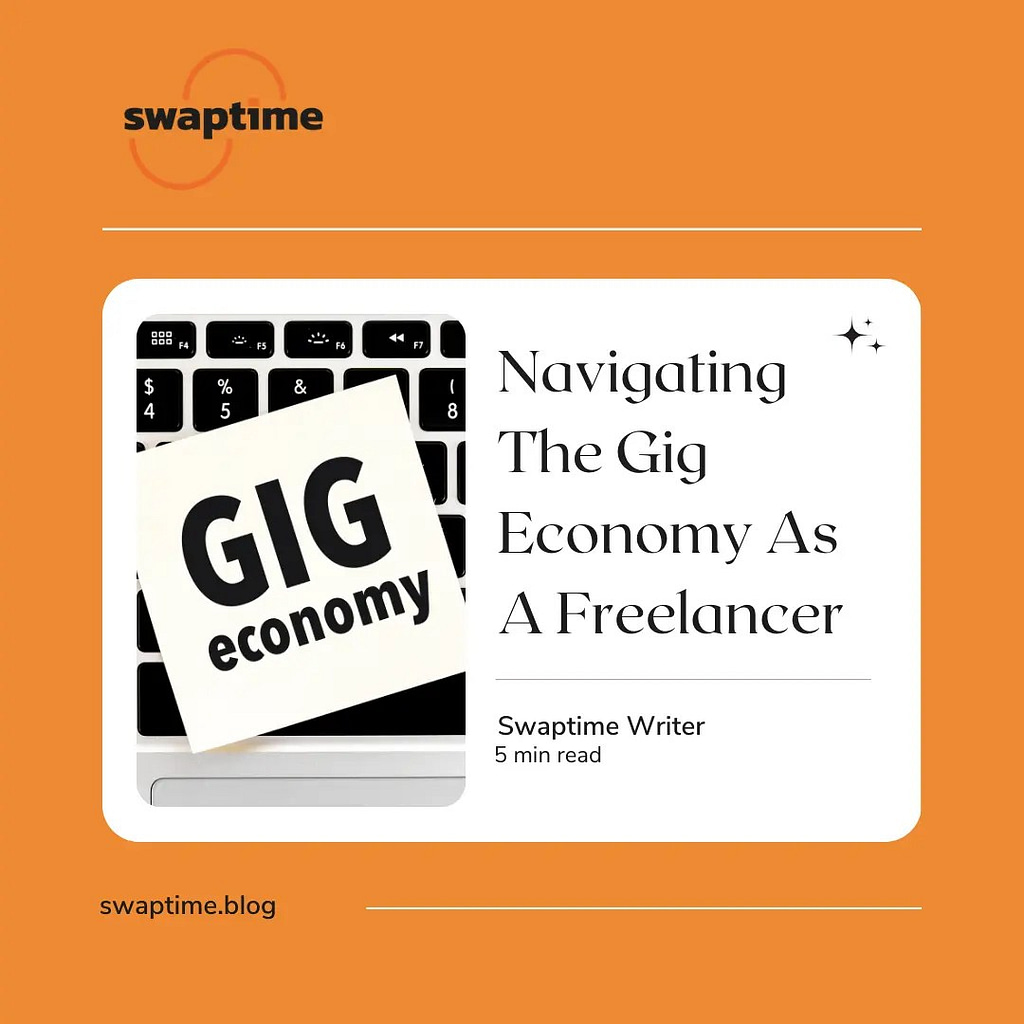Are you familiar with the gig economy? Recently, the gig economy has experienced a significant shift, with freelancers having opportunities to find work and pursue their passions. Sometimes navigating in this industry can be a lot to handle either as a newbie or experienced professional. To succeed, it is important to understand how to thrive in the gig economy as a freelancer. In this article, we’ll explore some tips to help you navigate the gig economy effectively.
The gig economy
The gig economy is also known as the freelance economy and it describes the shift from traditional full-time roles to short-term, temporary, or freelance work arrangements. Instead of nine-to-five jobs, workers in the gig economy often engage in independent contractor roles, completing specific tasks or projects for multiple clients or companies. This shift away from traditional employment structures is mainly due to the advancements in technology. With online platforms and mobile apps, it’s become easier for freelancers to connect with clients in need of their services worldwide.
Why do people choose the gig economy?
- Flexibility: This is one of the most appealing aspects of the gig economy, the flexibility it offers. Freelancers can set their schedules, choose the projects they work on, and determine their workload. This flexibility allows people to balance work with other responsibilities they might have.
- Autonomy: Unlike traditional employment structures where you may have limited control over your work tasks and environment, gig workers have greater autonomy. They have the freedom to choose how they approach their work, which projects to accept, and how to manage their time and resources.
- Diverse opportunities: The gig economy gives you a diverse range of opportunities across various industries and skill sets. There are countless platforms and marketplaces where you can find work that aligns with your expertise and interests. This diversity of opportunities allows you to explore different roles, develop new skills, and pursue your passions.
- Additional income: For many people, gig work provides a means of supplementing their primary income or earning extra money on the side. It allows you to work extra hours, as long as you need to supplement your income. It is a flexible source of additional income that you can fall back to.
- Work-life balance: One of the goals of every working professional is to achieve a healthy work-life balance. Being a freelancer makes this easier to achieve by offering greater flexibility and control over your schedule. As a freelancer, you can tailor your work hours to fit around your personal lives, allowing you to spend more time with family and friends, pursue interests, and prioritize your well-being.
- Pursuit of passion: For some people, the gig economy represents an opportunity to pursue their passions and turn their hobbies into a source of income. Gig work allows creative individuals to monetize their talents and share their passions with a wider audience.
- Entrepreneurial spirit: Many people opt for the gig economy because they are driven by an entrepreneurial spirit and a desire to be their own boss. Freelancing allows you to take ownership of your career, build your brand, and pursue opportunities for growth and self-development at your pace.
Tips to help you navigate the gig economy as a freelancer

Define your niche
Defining your niche is one of the first steps in succeeding as a freelancer in the gig economy. Identify your strengths, skills, and areas of expertise. Having a clear focus will not only make it easier for you to market yourself but also help you stand out. Whatever skill you decide to specialize in, honing in on your niche will attract the right clients and projects.
Build your online presence
In the gig economy, your online presence is everything. Create a professional website or portfolio showcasing your work, skills, and experience. Platforms like LinkedIn, Upwork, Freelancer, or Fiverr help you to connect with potential clients and show your expertise. Research the social media channels relevant to your industry and actively engage with peers, share your insights, and establish yourself as an authority in your field.
Cultivate relationships
Another good way to thrive in the gig economy is to build strong relationships. Treat every client interaction as an opportunity to impress and exceed expectations. Underpromise and overdeliver, provide exceptional service, communicate effectively, and deliver high-quality work on time. Satisfied clients are more likely to recommend you to others and become repeat customers which contributes to your success as a freelancer.
Diversify your income streams
Relying on a single source of income can leave you vulnerable in the gig economy. Diversify your revenue streams by taking on different projects that you can deliver on. Explore different platforms or offer additional services related to your niche. For example, if you’re a freelance writer, consider offering editing or proofreading services to expand your offerings and appeal to a wider audience, that way you can make more money.
Manage your finances wisely
With freelancing, you often cannot predict the stability of your income, so it’s important to manage your finances wisely. Carefully keep track of your earnings, expenses, and taxes. Practice good personal finance management and set aside a portion of your income for taxes, savings, and emergencies. Consider investment options that will help you build wealth. Always set aside money for times when you might not have a gig that would provide income.
Continuously learn and adapt
With new technologies, trends, and opportunities emerging regularly, the gig economy will continue to change. Stay ahead of the curve by continuously learning and upgrading your skills. Invest in personal and professional development, attend events, and seek feedback from clients to identify areas for improvement. Be ready to adapt and open to embracing change as it occurs in your industry.
Prioritize self-care
Freelancing is flexible but it can also be demanding. Long hours and tight deadlines can take a toll on your physical and mental well-being. It’s important to prioritize self-care by establishing boundaries, taking breaks, and maintaining a healthy work-life balance. Set realistic goals, delegate tasks when necessary, and know when to say no to projects that don’t align with your values or capacity. Don’t take on more than you can handle.
Conclusion
The gig economy is thriving and it’s here to stay. Whatever your motivations for choosing freelancing, navigating the gig economy requires a combination of strategy, resilience, and adaptability. Things will not always be easy and sometimes, it can overwhelming to handle tasks on your own without the support and structure that a traditional job offers. But when you put yourself out there and put systems in place to make things work for you, you can position yourself for long-term success. Embrace the opportunities the gig economy has to offer and leverage them to achieve your professional goals and aspirations.
ALSO READ:
Collaboration as a Creative: 8 Reasons You Should Consider It
The Role of Skill Bartering in Small Business Growth



